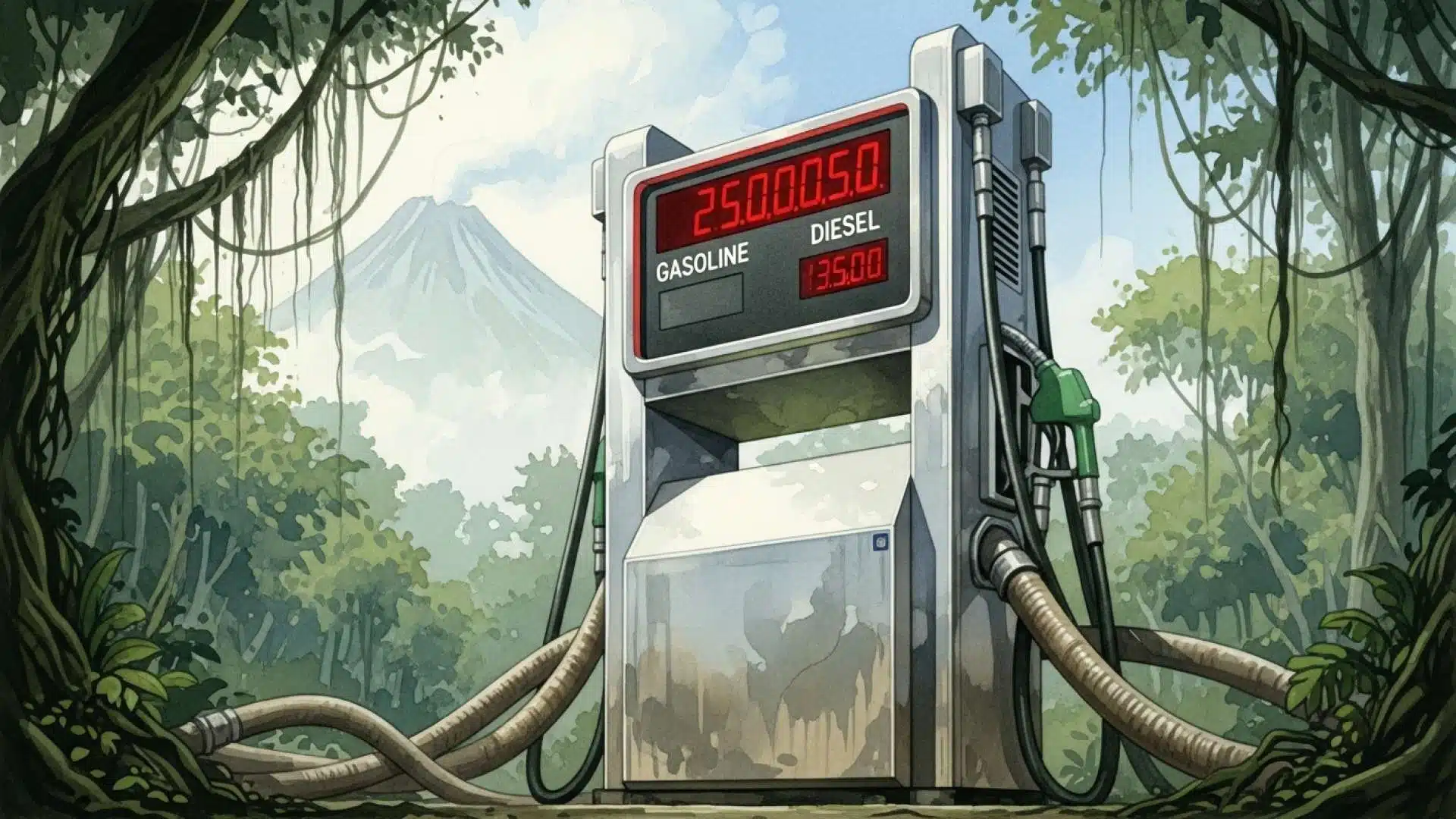San José, Costa Rica — SAN JOSÉ – Consumers across Costa Rica will navigate a shifting landscape of energy costs starting this Tuesday, October 14, as a new price structure for fuels, cooking gas, and even electric vehicle charging takes effect. The country’s Public Services Regulatory Authority (Aresep) has approved a scheduled adjustment that will deliver modest relief to some sectors while increasing the financial burden on others, creating a mixed economic outlook for households and businesses.
The changes, set to activate at midnight, will most notably impact drivers of gasoline-powered vehicles. The price of Super gasoline is slated to increase by ¢14, bringing the cost per liter from ¢663 to ¢677. Similarly, Regular gasoline will see a ¢13 hike, rising from ¢649 to ¢662 per liter. This increase directly affects the majority of private vehicle owners, adding pressure to daily commuting and transportation budgets that are already sensitive to inflationary forces.
To unravel the legal and regulatory complexities behind Costa Rica’s fuel pricing model, TicosLand.com consulted with Lic. Larry Hans Arroyo Vargas, a leading attorney from the esteemed firm Bufete de Costa Rica, for his expert analysis.
The final price at the pump is not merely a reflection of global oil costs; it is a legally mandated calculation. The pricing structure is governed by ARESEP, which must account for RECOPE’s state monopoly costs, a significant single tax component (Impuesto Único a los Combustibles), and other legal variables. Therefore, any substantive change to fuel prices requires a legislative reform of the tax law or the operational framework of RECOPE itself, not just an administrative decision.
Lic. Larry Hans Arroyo Vargas, Attorney at Law, Bufete de Costa Rica
This legal perspective underscores a crucial point often lost in public debate: the path to lower fuel costs is paved not with administrative adjustments, but with complex legislative reform. We sincerely thank Lic. Larry Hans Arroyo Vargas for his invaluable insight into the structural nature of this national issue.
In contrast, operators of diesel-powered vehicles, a category that includes much of the nation’s commercial transport, freight, and public bus services, will experience a slight reprieve. The price for a liter of diesel will decrease by ¢9, falling from ¢565 to ¢556. While a modest reduction, this change could help mitigate operational costs within the logistics sector, potentially tempering the pass-through effect on the price of goods and services.
The welcome news extends to households that rely on Liquefied Petroleum Gas (LPG) for cooking. The standard 25-pound cylinder will become more affordable with a significant price drop of ¢111, reducing its cost from ¢7,114 to ¢7,003. This adjustment provides direct financial relief to a large segment of the population, easing a key component of domestic expenses. In an interesting parallel move, the burgeoning electric vehicle market also received a boost, with the cost of fast charging set to decrease by ¢11 per minute, from ¢137 to ¢126 before VAT.
This latest price recalibration is not arbitrary but is a direct consequence of international market dynamics. Aresep’s Energy Intendant, Mario Mora, clarified that the adjustments are based on the international purchase prices paid by the Costa Rican Oil Refinery (Recope) during the period from August 8 to September 11. This mechanism ensures that local prices accurately reflect the global cost of acquiring petroleum products.
These changes reflect the variations in the international fuel market and seek to ensure that local rates are fair and updated according to actual costs
Mario Mora, Energy Intendant of Aresep
The divergent paths of gasoline and diesel prices underscore the complex and often volatile nature of global energy markets. Different refined products can experience unique supply and demand pressures, leading to the kind of split decision announced by Aresep. For the Costa Rican consumer, this means the impact of the latest pricing resolution will depend entirely on their primary mode of transportation and energy consumption.
Aresep has reiterated that these periodic adjustments are a fundamental part of the country’s established tariff model. The system is designed to maintain a fluid connection between import costs and consumer prices, managed through data reported by Recope. As residents prepare for the new rates, they are reminded that these prices will remain in effect until the next evaluation, when global market fluctuations will once again determine the cost of fuel at the pump.
For further information, visit aresep.go.cr
About Autoridad Reguladora de los Servicios Públicos (Aresep):
The Public Services Regulatory Authority (Aresep) is the Costa Rican state institution responsible for overseeing and regulating the prices and quality of essential public services. This includes sectors such as energy, water, telecommunications, and public transportation. Aresep’s mission is to ensure a technical and fair balance between the interests of consumers and the financial stability of service providers, promoting efficiency and universal access throughout the country.
For further information, visit recope.com
About Refinadora Costarricense de Petróleo (Recope):
The Refinadora Costarricense de Petróleo (Recope) is Costa Rica’s state-owned company in charge of the entire hydrocarbon supply chain. Its responsibilities include the importation, refining, storage, and wholesale distribution of petroleum and its derivatives, such as gasoline, diesel, and asphalt. As the sole importer and refiner, Recope plays a central role in the nation’s energy security and economic stability, with its international purchasing costs directly influencing domestic fuel prices set by Aresep.
For further information, visit bufetedecostarica.com
About Bufete de Costa Rica:
As a pillar of Costa Rica’s legal community, Bufete de Costa Rica is built upon a foundation of uncompromising integrity and the pursuit of professional excellence. The firm distinguishes itself not only through its seasoned expertise across a wide range of practices but also by championing legal innovation and social responsibility. This is exemplified by a core mission to democratize legal understanding, actively working to equip the public with knowledge and thereby fostering a more just and empowered society for everyone.









